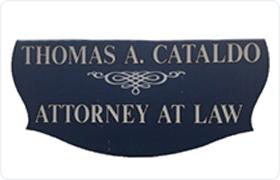Newark Real Estate Lawyer, New Jersey, page 8
Sponsored Law Firm
-
 x
x

Click For More Info:
-
Thomas A. Cataldo, Attorney at Law
52 South Street Morristown, NJ 07960» view mapReal Estate Law Tip The Scales In Your Favor!
Thomas A. Cataldo, Attorney at Law has the legal experience you need at affordable rates that can't be beat.
800-834-4291
Robert F. Renaud
Land Use & Zoning, Litigation, State and Local, Wills & Probate
Status: In Good Standing *Status is reviewed annually. For latest information visit here Licensed: 51 Years
Thomas W. Ackermann
Real Estate, Estate Planning, Merger & Acquisition, Corporate, International
Status: In Good Standing *Status is reviewed annually. For latest information visit here Licensed: 44 Years
Craig W. Alexander
Commercial Real Estate, Lending, Transactions, Real Estate, Business
Status: In Good Standing *Status is reviewed annually. For latest information visit here Licensed: 31 Years
Charles S. Lorber
Land Use & Zoning, Litigation, Corporate, Contract
Status: In Good Standing *Status is reviewed annually. For latest information visit here Licensed: 56 Years
Richard M. Salsburg
Corporate, Business Organization, Complex Litigation, Construction
Patrick R Mindas
Residential Real Estate, Commercial Real Estate, Commercial Leasing, State and Local, Contract
Status: In Good Standing *Status is reviewed annually. For latest information visit here Licensed: 46 Years
John Badagliacca
Commercial Leasing, Alcoholic Beverages, Criminal, Animal Bite
Status: In Good Standing *Status is reviewed annually. For latest information visit here Licensed: 39 Years
JoAnn Katzban
Real Estate, Estate Planning, Family Law, Personal Injury, Lawsuit & Dispute
Status: In Good Standing *Status is reviewed annually. For latest information visit here Licensed: 31 Years
 Thomas Cataldo Morristown, NJ
Thomas Cataldo Morristown, NJ Practice AreasExpertise
Practice AreasExpertise